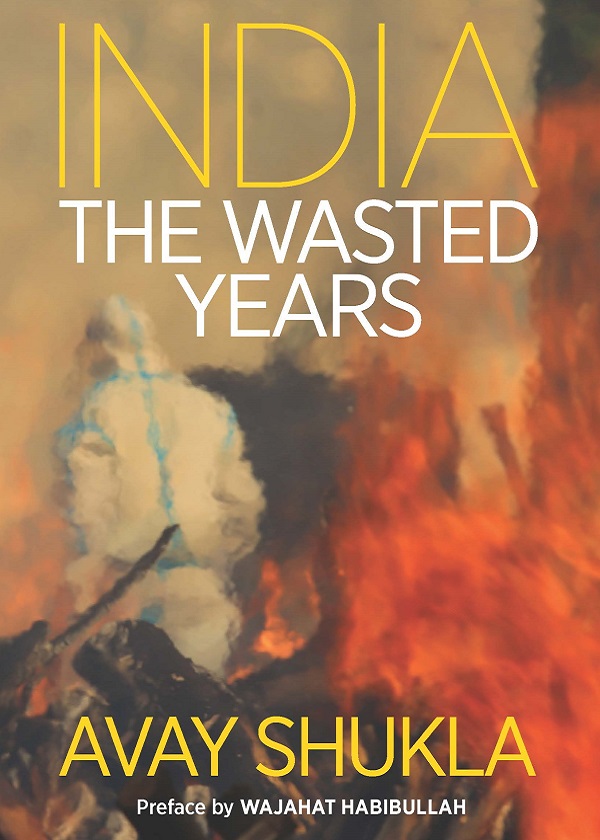Gokarakonda Naga Saibaba was born in 1967 to a family of poor farmers from Amalapuram in East Godavari district of Andhra Pradesh. The exact date of his birth is not known, as his parents did not record it. He died on October 12, 2024, aged 57, in Hyderabad following post-operation complications after a surgery to remove stones from his gall bladder.
After he was afflicted by polio, he used a wheelchair from the age of five. A brilliant student, Saibaba topped his batch of undergraduate students at the Sree Konaseema Bhanoji Ramars (SKBR) College, Amalapuram, went on to complete a Master’s Degree in English from the University of Hyderabad, and then a Ph.D degree from the University of Delhi in 2013. His doctoral thesis was on “Indian Writing in English and Nation Making: Reading the Discipline.” He wrote in Telugu and English. His writings often dealt with the lives of the downtrodden and underprivileged Dalits and Adivasis.
Saibaba was arrested in 2014 after he was accused by the government of India of having ties with outlawed Maoist organisations and was sentenced to life imprisonment by a sessions court in Gadchiroli, Maharashtra, in 2017 on the basis of charges under the Unlawful Activities (Prevention) Act (or UAPA). He was then kept in the Nagpur Central Jail.
The professor had been arrested by police officials of Maharashtra and the former undivided state of Andhra Pradesh, and the Intelligence Bureau which works under the Union Ministry of Home Affairs, headed by Amit Shah. He was arrested while he was on his way home from the University of Delhi, where he taught.
The UAPA is often described as the most draconian of all laws in India’s statute books because it lays down stringent conditions for obtaining bail. Nevertheless, in October 2022, the Nagpur bench of the Bombay High Court acquitted Saibaba of the charges and ordered that he be released on bail.
But the relief from the High Court proved short-lived for the disabled man. The state government of Maharashtra rushed to the Supreme Court within hours of the High Court order and the case records were translated from Marathi to English overnight on Friday.
On Saturday, October 15, 2022, during a special hearing of a bench of the Supreme Court comprising Justices M R Shah and Bela Trivedi, the order of the Bombay High Court was suspended.
Saibaba’s lawyer, senior advocate R Basant, sought to refute the Indian government’s allegation that his client, a 90% physically disabled man, who was a “respectable” professor, was the “brain” behind Maoist activities and that his fellow accused were mere “foot-soldiers”.
The Supreme Court bench remarked that generally “as far as terrorist activities are concerned, the brain plays a very important role… A brain for such activities is very dangerous.”
The request to transfer Saibaba for “house arrest” in order to “preserve his health” was not accepted by the bench comprising Justices Shah and Trivedi.
The Solicitor General of India Tushar Mehta, appearing for the Maharashtra government, remarked: “These requests are coming very frequently from Naxals, especially urban Naxals… In UAPA offences, accused have to be kept confined. You don’t need to go somewhere to stab someone, you don’t need to go somewhere to shoot someone.”
Senior Advocate Basant suggested that guards could be posted outside Saibaba’s house and his telephone lines disconnected. He said he was a making a humanitarian request on medical grounds and that the professor “did not have any criminal antecedents, not even a prosecution…”
“Isolation in prison is the only condition for UAPA offenders,” Mehta said.
The Bombay High Court had set aside the lower court judgment and ordered the release of Saibaba and other accused persons and noted that no sanction for his prosecution existed at the time the court took cognisance of the case and even while charges were framed against him.
The Supreme Court bench, however, found, after giving “anxious thoughts” about the facts and circumstances, that the case was a “fit” one to suspend the Bombay High Court’s order of discharge.
Mehta argued that the offences against Saibaba were serious, grave and affected the sovereignty and integrity of India. The so-called urban Naxalites wanted to “overthrow the parliamentary form of democracy,” he claimed.
The Supreme Court asked the Bombay High Court to re-evaluate the case. On March 5, 2024, Saibaba (as well as five other individuals who were tried along with him) were once again acquitted by a bench of the High Court comprising Justices Vinay G Joshi and Justice Valimiki S Menezes. The court declared the prosecution’s case invalid, said that the evidence presented was dodgy and inadequate and that the life imprisonment verdict by the trial court in Gadchiroli was a “failure of justice.”
Besides Saibaba, those who were charged under the UAPA were journalist Prashant Rahi, Mahesh Tikri, Hem Keshwdatta Mishra and Vijay Nan Tikri. The sixth person in the case, Pandu Narote, died in August 2022, awaiting a favourable verdict. The Maharashtra government claimed the accused were all members of the banned Communist Party of India (Maoist).
Incidentally, Saibaba’s defence in the trial court was handled by the Nagpur-based human rights lawyer Surendra Gadling, who, soon after the completion of trial, was himself arrested in the Elgar Parishad case.
The second acquittal by the Bombay High Court was challenged in the Supreme Court by way of filing a special leave petition the same day and prior to the delivery of the High Court’s judgement and even before a copy of the 293-page judgement was made available.
This account indicates how the judicial system in India works, especially if some of the most powerful persons in New Delhi are determined to go after a person. He had to be acquitted not once, but twice by one of the country’s leading high courts.
After he came out of jail, Saibaba remarked that it was a wonder that he was alive. Seven months later, he was gone. His case, like that of Father Stan Swamy, can be aptly described as an instance of “judicial murder.” Saibaba donated his body for medical research.
This tribute to him was written by his comrade Janjerla Ramesh Babu, president, Telangana Forum Against Displacement:
Dear Doctors,
When you remove Saibaba’s eyes,
Please add a touch of gentleness,
For in them lie traces of the world he dreamt of,
That might unfold within someone else.
Please extract his heart with utmost skill,
For in that tenacious heart that denied death
In the fascist Manuvadi regime’s prison,
You may find the roots of tender compassion
For the Adivasis and the oppressed masses.
In constant captivity, grappling with illness,
He stood firm for his beliefs.
Please check, perhaps, those polio-stricken legs
Could leave a mark on the faces
Of the chameleon activists who preach a new ideology every day.
One more, final request…
Please preserve that brain even more carefully for the future generations,
For though ninety percent disabled,
His “thinking mind” made this exploitative system tremble with fear.
Someday, it may help someone identify the system’s weak link.


